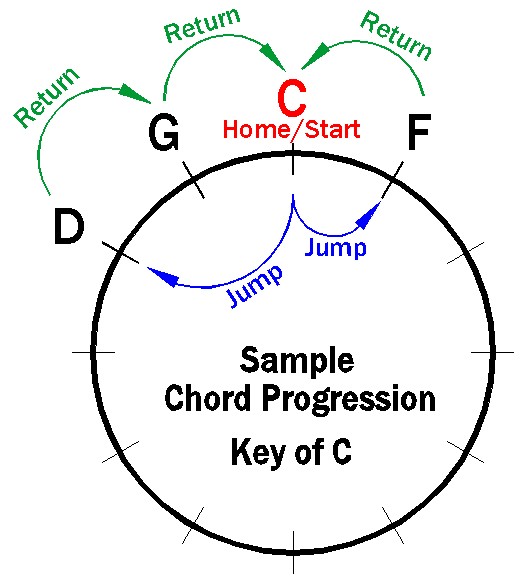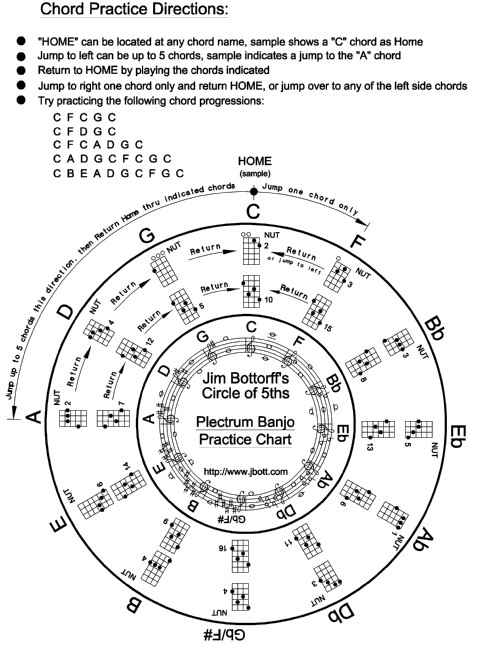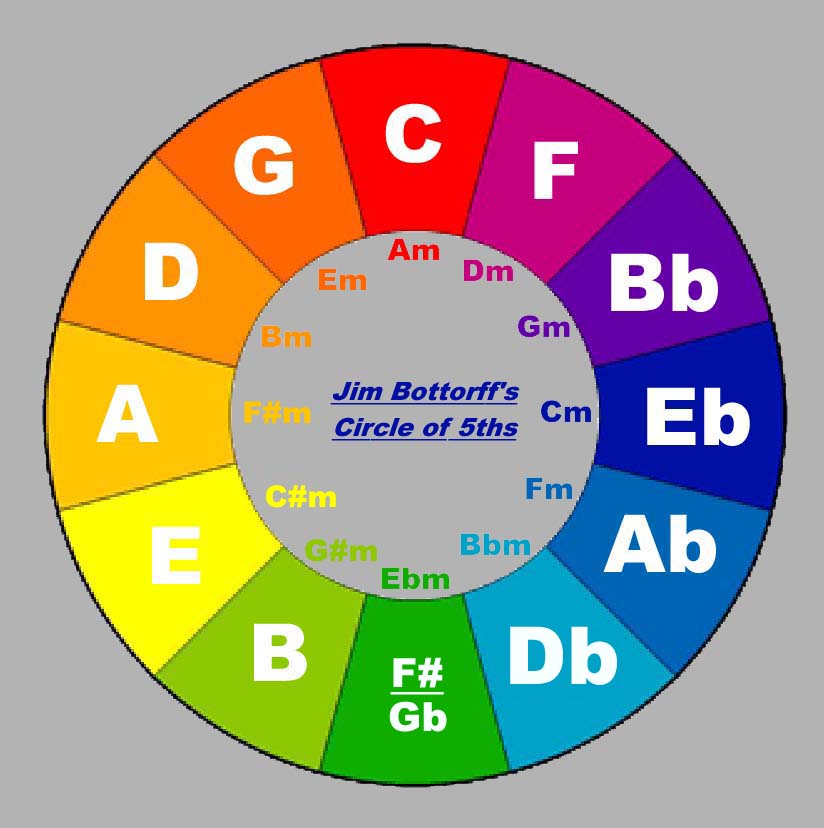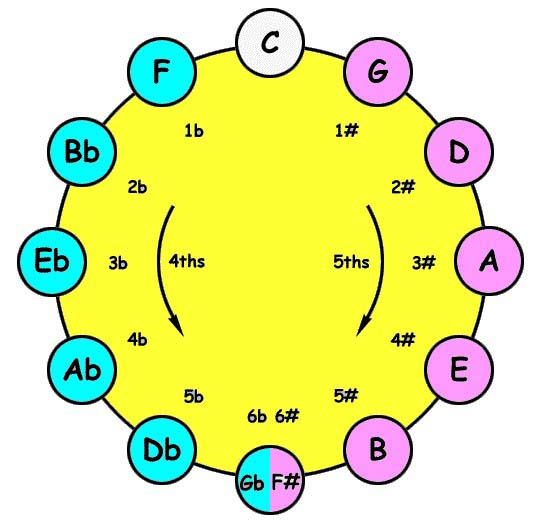-
- Jim Bottorff's
Banjo Page
- CIRCLE OF 5ths
-
- You'll find a wealth of
information online about the many uses of the Circle of Fifths.
- I've personally discovered
the following applications to be very helpful in my banjo playing:
-
- Chord Progressions Practice Charts Diagrams Relative Minors
-

-
- Return to Home Page
- Return to Song
Catagories
- Go to Beginner's Songs
- Go to Instruction
Items
- Go to Easy Play-Along
Songs
- Go to Performer Links
page
- Website Search
- Go to bottom of this page
-
- Chord Progressions
-
- The Circle of
5ths diagram below can be used to practice chord progressions.
- The diagram illustrates
a chord family for the Key of C:
-
-

-
- Start at "Home"
(C) and jump left or right and return back Home.
- Try this chord
progression: C F C D G C
-
-
- Chord Practice
Chart for the Plectrum Banjo
-
- The outer ring of letters
indicates chord names.
- The inner ring of letters
indicates key signitures with sharps and flatts.
-

-
-
- Click below to
view or print a practice chart for your banjo:
PLECTRUM BANJO - C TUNING (pdf)
5-STRING BANJO - G TUNING (pdf)
TENOR BANJO (pdf)
GUITAR TUNED BANJO (pdf)
Here are some songs
that jump from C to E7:
FIVE FOOT TWO (Chorus)
ALL OF ME (Chorus)
PLEASE DON'T TALK ABOUT ME
WHEN I'M GONE (Chorus)
Here are some songs
that jump from C to B7:
MISTER SANDMAN (Chorus)
RED ROSES FOR A BLUE LADY
(Chorus)
- Circle of 5th
Diagrams - Clockwise and Counter-Clockwise
- I've interpreted the Circle
of Fifths in two ways, both illustrating how music resolves back
to the home key.
- Traditionally, the clockwise
arrangement is shown, but the counter-clockwise version is now
more common.
-
- Clockwise Arrangement
- (Left to Right,
such as B E A D G C)
-

-
- The Clockwise version is
useful for finding notes on the bass-guitar and last four strings
of the guitar.
Bar across any fret on your bass or guitar and the notes can
be read from the above diagram.
- For example, the bass is
tuned E A D G (at the nut), same order as the names on the above
diagram.
Bar across the 5th fret and the notes are A D G C, as per the
diagram. Other frets are similar.
-
-
- Counter-Clockwise
Arrangement
- (Right to Left,
such as B E A D G C)
-

-
- For the tenor banjo, the
Counter-Clockwise arrangement works for finding notes.
The tenor banjo is tuned C G D A (at the nut), same order as
the names on the diagram above.
- Bar across the 5th fret
and the notes are F C G D, as per the diagram. Other frets are
similar.
-
- Relative Minor
Keys and Chords
- Click on the diagram below
to inlarge and see the relative minor keys and chords.
- These minor chords are often
substituted for their major counterparts in music.
-

Return to top of
this page


